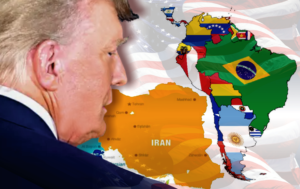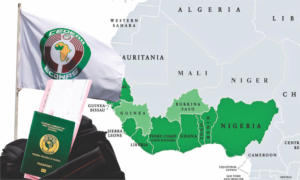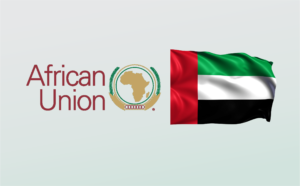Global Flotilla to Gaza Revives Debate on Blockades, Regional Stability, and Human Costs
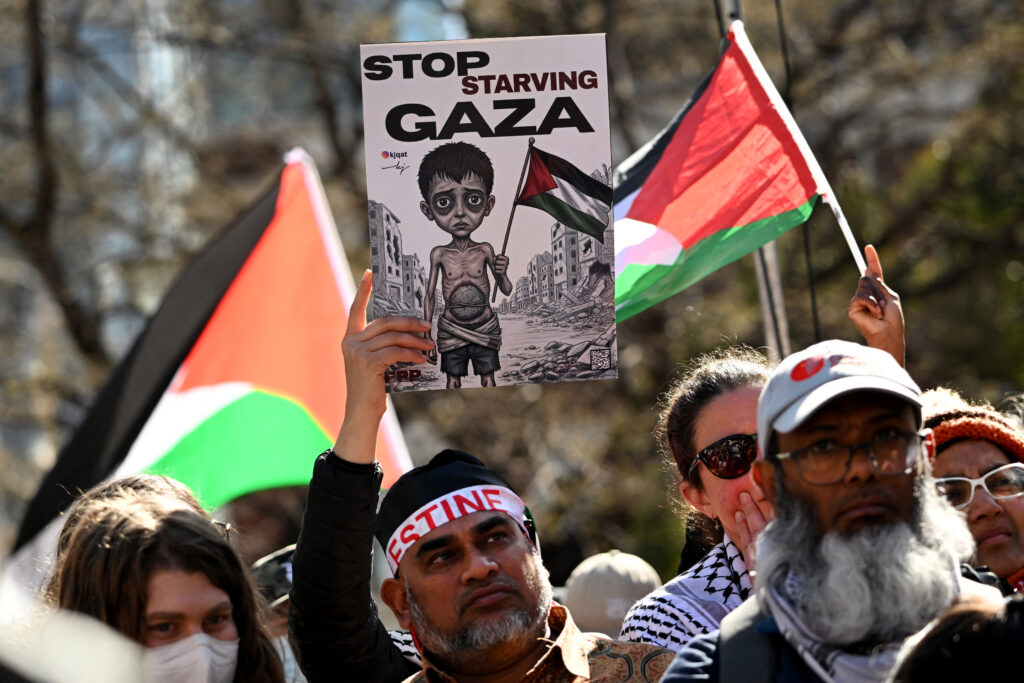
Demonstrators take part in a pro-Palestinian rally against Israel's actions and ongoing food shortages in the Gaza Strip, which the UN officially declared a famine on August 22, during a protest in Melbourne on August 24, 2025. (Photo by William WEST / AFP)
A multinational coalition of civil society groups is set to launch the Global Sumud Flotilla from Spain this Sunday, with the stated aim of sailing toward Gaza in defiance of Israel’s long-standing blockade. Organized by the International Committee to Break the Siege, the flotilla has been described by its participants as a worldwide act of civil resistance against what they term “the siege and genocide” in Gaza. The group further accuses international institutions of “failure and complicity,” charging that global powers have been unwilling or unable to prevent humanitarian collapse in the territory.

Economic Dimensions of a Blockade: The blockade on Gaza, in place since 2007, has produced severe economic dislocations, curtailing trade, constraining imports of essential goods, and stifling private sector development. Analysts note that sustained restrictions on movement have devastated manufacturing and agricultural productivity, leaving Gaza’s economy dependent on humanitarian aid and informal networks.
For regional economies, the blockade is more than a localized crisis. Egypt, Jordan, and Mediterranean trade hubs face heightened instability in cross-border commerce, tourism, and energy cooperation. The flotilla’s challenge therefore reopens critical questions about whether prolonged economic isolation can coexist with aspirations for regional integration and growth.
Human and Family-Level Impacts: Behind statistics on GDP and unemployment lie profound human and family-level consequences. Gaza’s population is more than two million people, half of whom are under 18—lives under conditions that international organizations have repeatedly described as unsustainable. Families grapple daily with shortages of medicine, fuel, and potable water. Migration restrictions hinder reunification with relatives abroad, fragmenting family structures and weakening social safety nets that traditionally mitigate hardship in Palestinian society.
The flotilla’s organizers position their effort not only as political theater but also as a humanitarian reminder: that economic frameworks cannot be divorced from the human costs borne by civilians.
Cultural and Social Ramifications: Culturally, the blockade has amplified what scholars describe as a “siege mentality,” where communities rely on resilience, or sumud – the Arabic word for steadfastness, invoked in the flotilla’s name. Artistic and cultural exchanges are constrained, limiting Gaza’s participation in the broader Arab and Mediterranean cultural economy. International solidarity efforts, such as the flotilla, become symbolic attempts to breach not just physical barriers, but also cultural isolation.
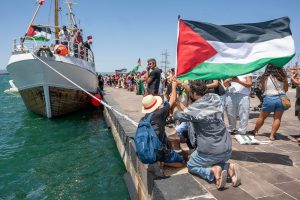
Socially, the siege reinforces generational divides: youth, with limited mobility and restricted opportunities, often inherit trauma alongside economic precarity. The flotilla, with participants from Europe, Africa, Asia, and Latin America, seeks to signal that global civil society acknowledges these pressures, even as governments remain hesitant.
Political and business contexts: Politically, the mission risks intensifying long-standing disputes over sovereignty, security, and international maritime law. Israel has historically intercepted such flotillas, citing the necessity of preventing arms smuggling into Gaza. Any confrontation could strain Spain’s diplomatic ties, test European Union consensus on Middle East policy, and renew debates at the United Nations about enforcement of humanitarian corridors.
For businesses, instability in the Eastern Mediterranean has direct implications. Maritime insurers monitor the flotilla closely, wary of potential escalations that could affect shipping routes. Energy companies investing in offshore gas fields in Israel and Cyprus track these tensions, aware that unrest can complicate pipeline and port security.
Global implications: The International Committee to Break the Siege frames its initiative as part of a global movement, linking Gaza’s plight to wider debates about the efficacy of international institutions. Its accusations of “failure and complicity” point to perceived erosion of global governance mechanisms, from the UN Security Council’s paralysis to trade frameworks unable to guarantee basic humanitarian flows.
Observers suggest that whether or not the flotilla reaches Gaza, its symbolic resonance will reverberate across multiple spheres: from academic debates about sanctions and blockades as economic tools, to grassroots conversations about solidarity, justice, and the meaning of global citizenship in an interconnected yet fractured world.
As the ships prepare to leave Spanish ports, the voyage is as much about the waters they traverse as the political, cultural, and economic boundaries they seek to contest.



